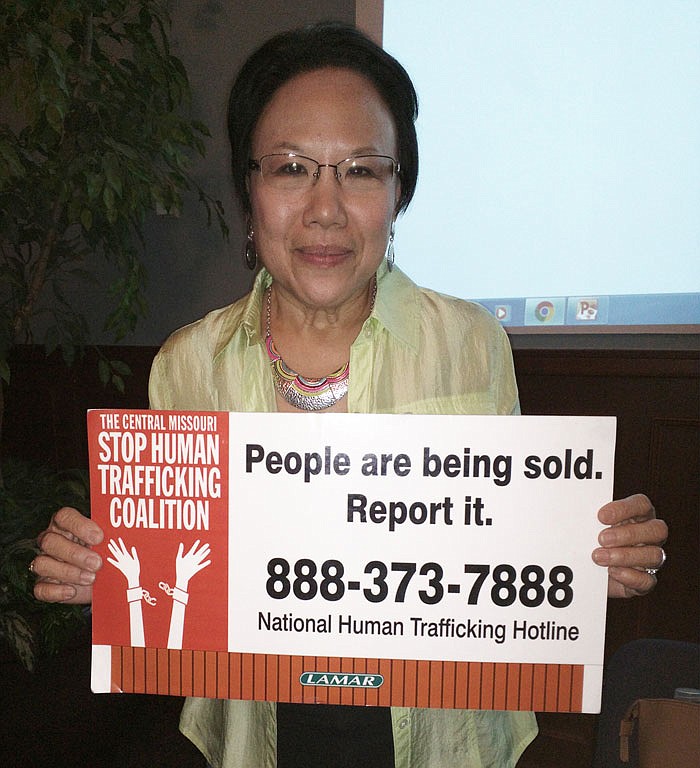"Guess what the fastest-growing criminal industry in the world is," Nanette Ward challenged the crowd of Westminster College students. "It's human trafficking."
The audience learned Tuesday evening about human trafficking from an anti-trafficking activist, a former victim who was also once a trafficker and an FBI agent.
Ward is a founding member of the Central Missouri Stop Human Trafficking Coalition. The organization helps seek victims, expose traffickers and support those who've survived trafficking. CMSHTC's most recent project is purchasing a billboard on I-70 which will display the organization's logo and the national human trafficking hotline's phone number.
"For me, when I think about the commodification of human beings. It's very frightening and relevant to every one of us," she said.
Ward explained different forms of trafficking currently present in the U.S. at large and in Missouri as well. Children are forced into the sex trade. Immigrants are made to work for sub-minimum wages, or for free, under threat of being reported to the immigration authorities and deported.
"Young people are joining door-to-door sales crews to make some summer money and end up being exploited," she said.
Jessica Neely now works as an anti-porn advocate. But as a 23-year-old youth pastor, she was raped.
"I thought a certain type of girl gets raped, and that I wasn't that girl," she said.
While dealing with post-traumatic stress disorder, Neely ended up in the porn and sex work industries and eventually ended up grooming and recruiting other girls and women.
"In 2013, I was looking at 30 years in federal prison for human trafficking," she said.
Instead she ended up at the Refuge for Women, a program for women who've been part of the sex trafficking industry. During her time in the program, she rediscovered her faith in God and discovered a passion for helping other people escape the draw of porn.
Chad John, the third speaker, is an F.B.I. agent from the satellite office in Jefferson City. As an agent, he's been part of operations to unmask sex traffickers and rescue victims. He spoke about some of the difficulties facing the agency.
One of the challenges, he said, in cases involving under-aged victims, was proving that the trafficker knew the victim was under the age of 18. While a minor can't legally consent or choose to be part of the sex industry, adults can.
"There's a difference between prostitution and sex trafficking," he said.
For adult victims, the authorities must be able to prove there was an element of force, fraud or coercion involved in them being trafficked in order for the "bad guy" to be prosecuted.
"My job is to tell you that when people step over the line (into illegal activity), I put them in jail," John said.
The agency often coordinates with non-governmental organizations like Nanette's coalition to find and help bring resources to victims.
Look for more in-depth coverage of this lecture and the topic of human trafficking in Missouri in Sunday's edition of the Fulton Sun.

